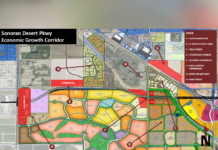By Davis Plunkett, Manager of Integrated Behavioral Health and
Maria Villalobos, Community Relations Coordinator Sun Life Family Health Center
Life can be messy and busy. We go through our day, juggling work, errands, children, sports, housework … the list goes on. Too often we go about the day that when we have a moment to reflect we have difficulty remembering what we did. There is such a rush to get things done or be somewhere that we don’t feel as were present in the moment but simply going through the motions. Many of us look for methods of not only being able to enjoy the moments life brings but being able to be present in those moments.
Mindfulness is simply being in the present moment and accepting it without judgment. There are many mental and physical health benefits of mindfulness. Mindfulness can bring improvements in both physical and psychological symptoms as well as positive changes in health, attitudes, and behaviors. Mindfulness improves well-being by making it easier to savor the pleasures in life as they occur, helping you become more engaged in activities, and creates a greater capacity to handle adverse events.
Mindfulness improves physical health as it can help relieve stress, treat heart disease, lower blood pressure, reduce chronic pain, and improve sleep. Mindfulness improves mental health by helping treat depression, substance abuse, eating disorders, conflict, anxiety disorders, and obsessive-compulsive disorder.
Mindfulness meditation builds upon concentration practices that primarily involve concentration. Concentration meditation techniques such as tai chi, yoga, focusing on the sensation of breathing can induce relaxation response which reduces the body’s response to stress.
Here are some tips to get started with mindfulness meditation:
- Just go with it. Begin by focusing your attention. Just observe your natural state, your thoughts and emotions as they are today. Each day may be different. Each moment may be different. Just observe your thoughts without judgment.
- Sensory awareness. Notice each of your five senses. What are you hearing? What are you seeing? What sensations can you notice in your body?
- Mindfulness is a skill. Just with any skill it takes practice. Mindfulness may feel uncomfortable at first. It may not even seem relaxing. That’s okay- just notice those reactions without judgment.
- Accept exactly where you are. Practice having compassion for yourself and where you are today. The goal is to accept each moment without judgment. If you become distracted, (which is expected!) gently redirect your thoughts to the present moment.
Aspects of the above information were adapted from www.helpguide.org/harvard/benefitsof- mindfulness.htm#exercises and Seligman, M.E.P., Rashid, T., Parks, A.C., American Psychologist 61(8), Nov 2006, 774-788.
This column appears in the November issue of InMaricopa.

















![Elena Trails releases home renderings An image of one of 56 elevation renderings submitted to Maricopa's planning department for the Elena Trails subdivison. The developer plans to construct 14 different floor plans, with four elevation styles per plan. [City of Maricopa]](https://www.inmaricopa.com/wp-content/uploads/2024/04/city-041724-elena-trails-rendering-100x70.jpg)